Telex photo journalist wins Grand Prize with a photo series about the family of a mother who died of Covid
The winners of the 40th Hungarian Press Photography Competition’s Grand Prizes were announced on 26 April, and the winners of the previously announced categories were awarded their certificates at this time. Telex photojournalist, János Bődey was awarded the André Kertész Grand Prize for the best people-centered documentary photography series, and our colleague Szabolcs Barakonyi (along with his co-authors) received the Mihály Gera Award for the most beautiful photo album of the last five years, entitled: Fortepan Masters.
The winners of the various categories in the Hungarian Press Photography Competition were announced in February, but the competing photojournalists had to wait for the announcement of the Grand Prizes until the opening of the exhibition showing their work at the National Museum in Budapest.
The competition looked at work done in 2021, and the Grand Prize of the Association of Hungarian Journalists (MÚOSZ) for the most outstanding achievement was awarded to Simon Móricz-Sabján for his series entitled A second life. The photographer’s work documenting the period of the Covid pandemic was awarded in several categories, including the Károly Escher Award for the best news photo taken in Hungary, and the Márton Munkácsi Award for the best collection.
The winner of the André Kertész Grand Prize for the best people-centered documentary photography series is Telex photojournalist János Bődey for his work entitled: All they wanted for Christmas was for Mum to be alive. The photo series depicts the grief-stricken everyday life of three orphaned children and their father following their mother’s death due to Covid-19. The photos won first prize in the category “Everyday life”, we wrote about the family’s story on Telex earlier this year.
The second prize in this same category was awarded to our colleague, Orsi Ajpek for her photo series about a set of twins who were adopted by a gay couple. She followed the daily life of the children for an extended period along with Telex journalist, Luca Pintér. The photo series entitled “Dads” provides a glimpse into the everyday life of rainbow families.
As part of the photography competition this year, the Association of Hungarian Journalists also held a competition for the Mihály Gera Award. The competition was open to photo books produced in the last five years, the images of which were taken by Hungarian authors, Hungarian authors living outside Hungary or foreign authors living in Hungary.
When choosing the winner, the jury considered the quality and originality of the photos included, as well as the quality of the typography and printing. In the end, the award was given to the publication entitled Fortepan Masters – Collective Photography from the 20th Century. The project’s concept creator and art director was our colleague, Szabolcs Barakonyi. The album features 333 photos on 690 pages, selected from Fortepan’s huge photo collection, and it was done in cooperation with creative concept designer Zalán Péter Salát, editor Róza Tekla Szilágyi, and managing director György Simó.
The Grand Prize-winning series are presented with introductions and captions by the authors.
The André Kertész Grand Prize for the best people-centered documentary photography series
János Bődey (Telex): All they wanted for Christmas was for Mum to be alive
There are no official figures on how many pregnant women received oxygen, how many were on ventilators or how many Caesarean sections have been carried out to save the lives of foetuses and mothers with Covid in Hungary. Nor can you find out how many pregnant women have died during the pandemic so far.
Gábor Biszak’s wife Erika, who was 31 weeks pregnant, was one of the victims. The doctors saved their third child by performing a Caesarean section last spring. Nimród, Johanna and Boróka are now growing up without a mother. The older two are trying to process what happened in their different ways.
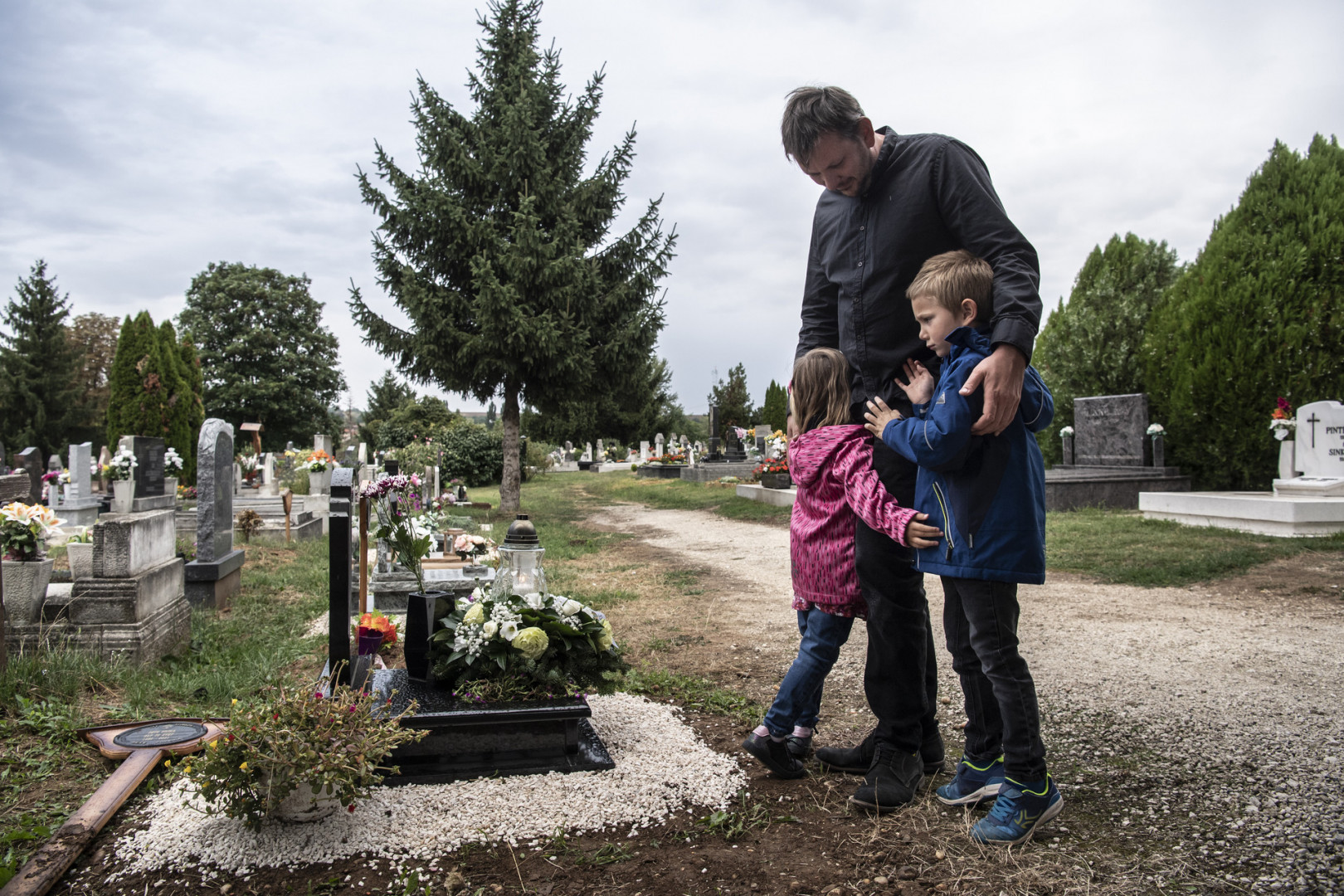
Erika Petz was 31 weeks pregnant when the ambulance took her to hospital with serious symptoms. Two days later she wrote to Gábor: „Caesarean”. That was her last message.
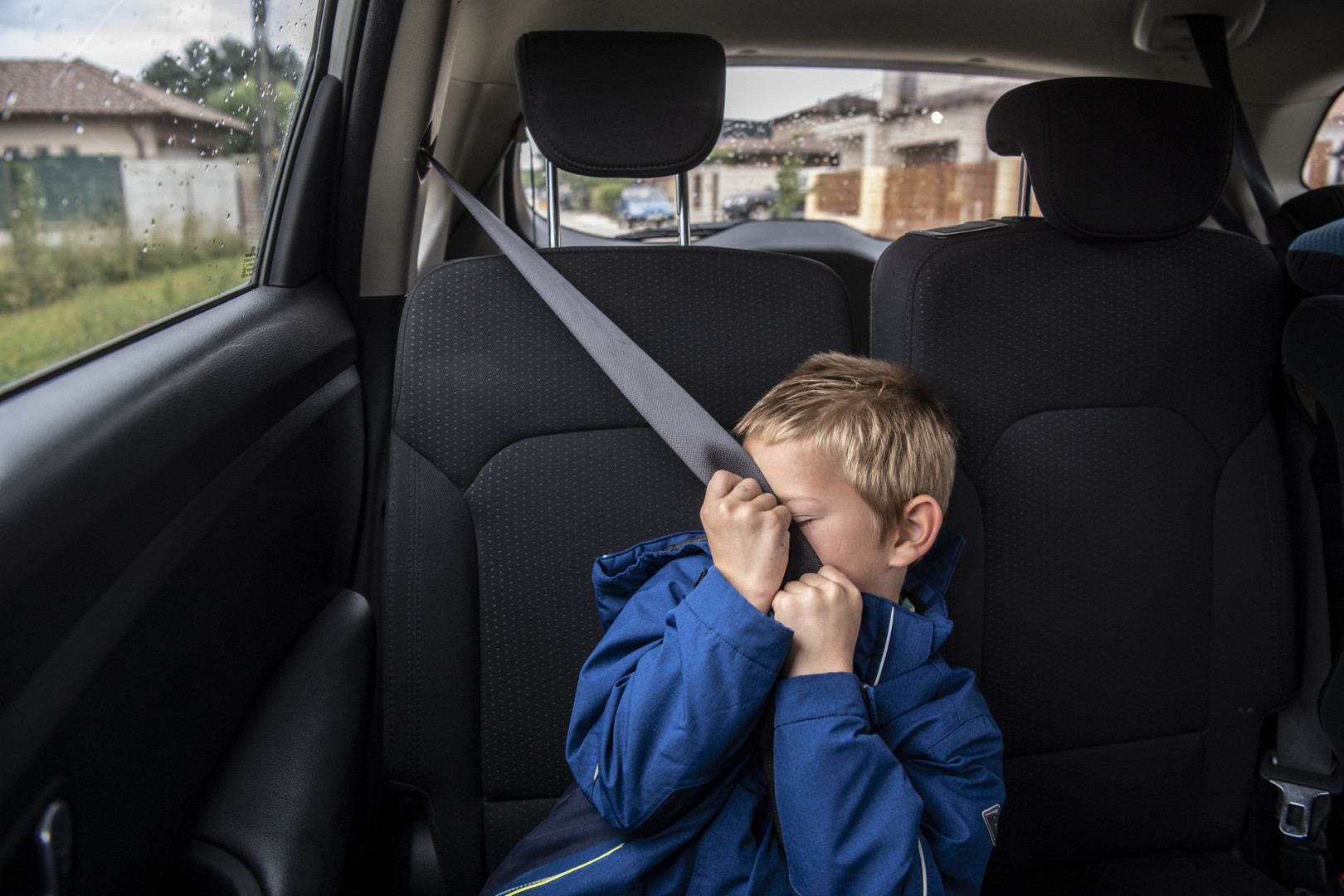
Nimród knows that his mother died from coronavirus, and at home he asks what can kill a healthy mother. He often looks at photos and cries, but “he doesn’t like to talk about it because he knows it is emotionally troubling. And he is protecting me too,” says Gábor.
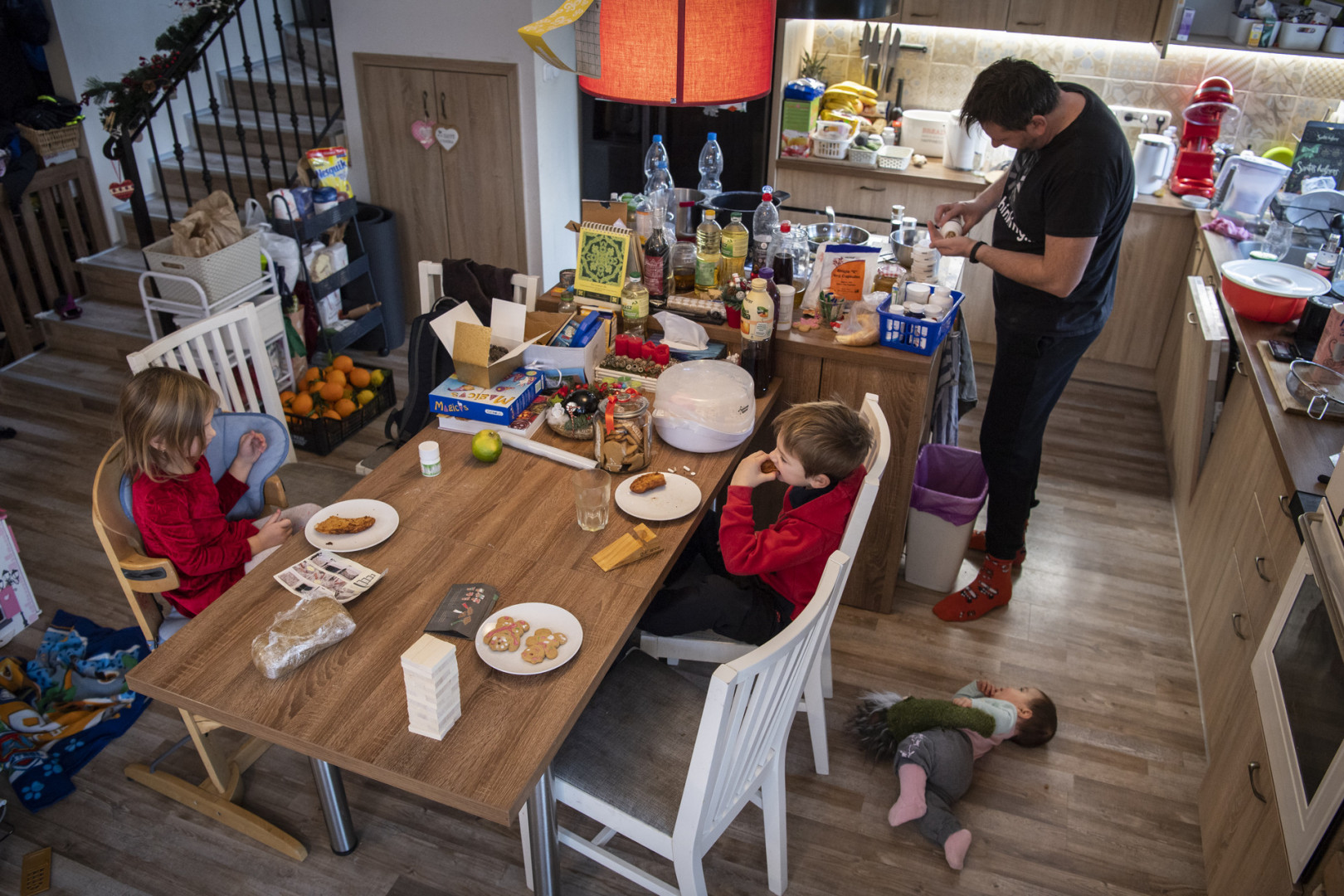
The family has now had its first Christmas without Erika. “Nimród and Johanna both said that all they wanted for Christmas was that their mother be alive. I said that they needed a plan B, as that wasn’t going to happen.“
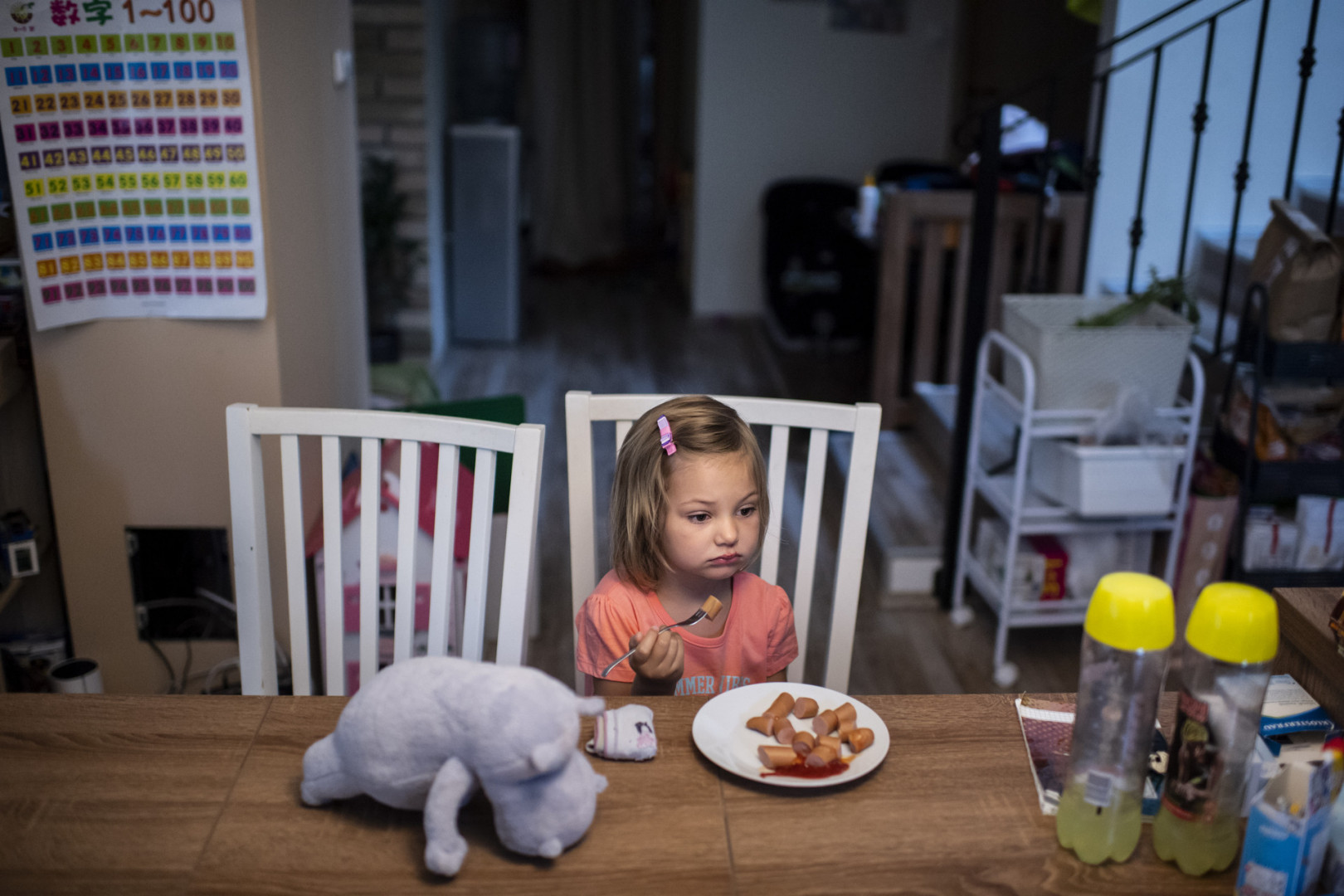
Johanna has memories that burst out, and sometimes says she has nightmares that her mother has died, but Gábor doesn’t know if that is true. „The psychologist says that by the time she goes to primary school she will have forgotten a lot, only fragments of memories will remain. It’s very painful.”
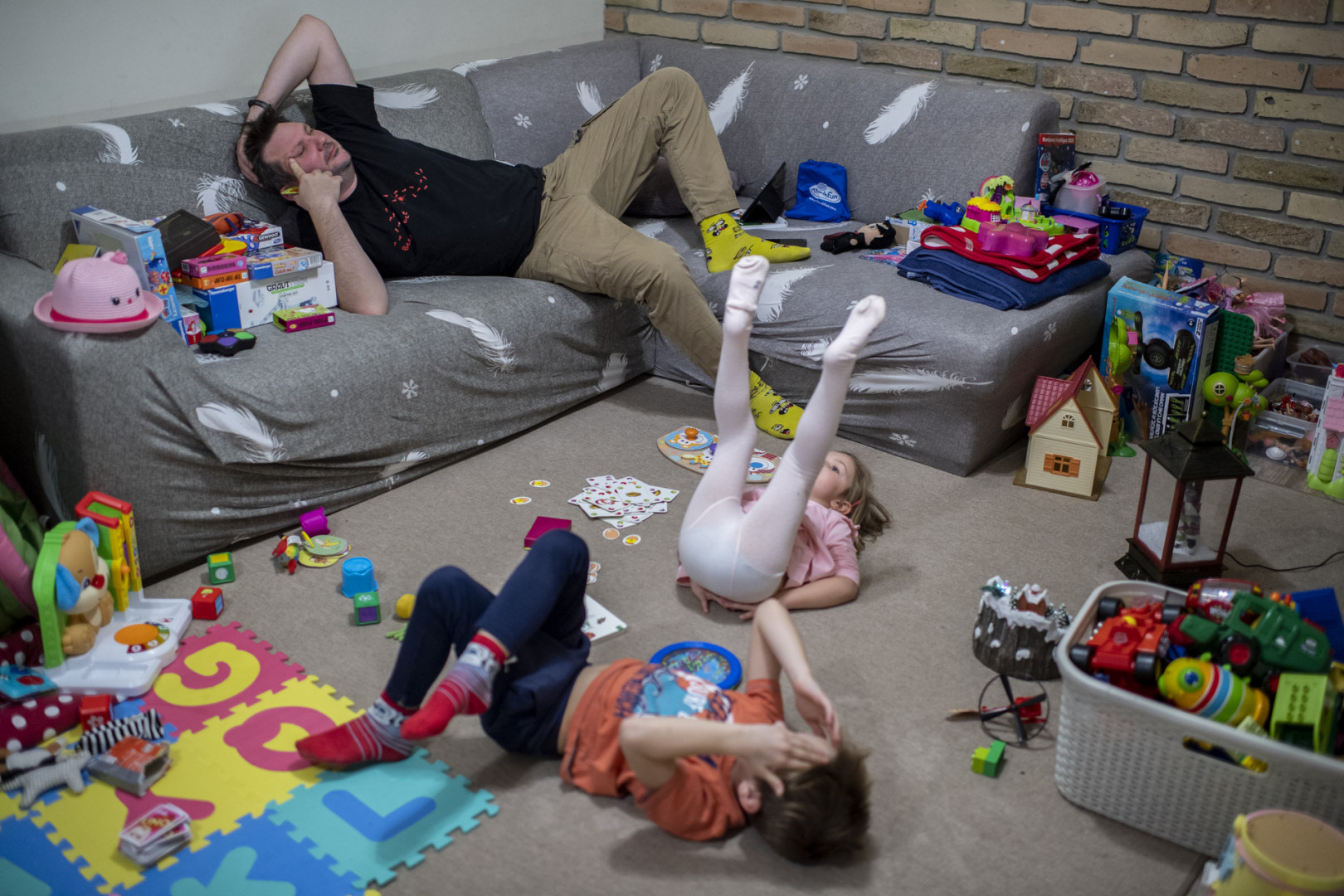
During the first few weeks following Erika’s death, friends and relatives set up an Excel sheet to organize when each of them would help care for the children. By August, this could be left behind, and only the paid employees remained: the babysitter and the cleaning lady.
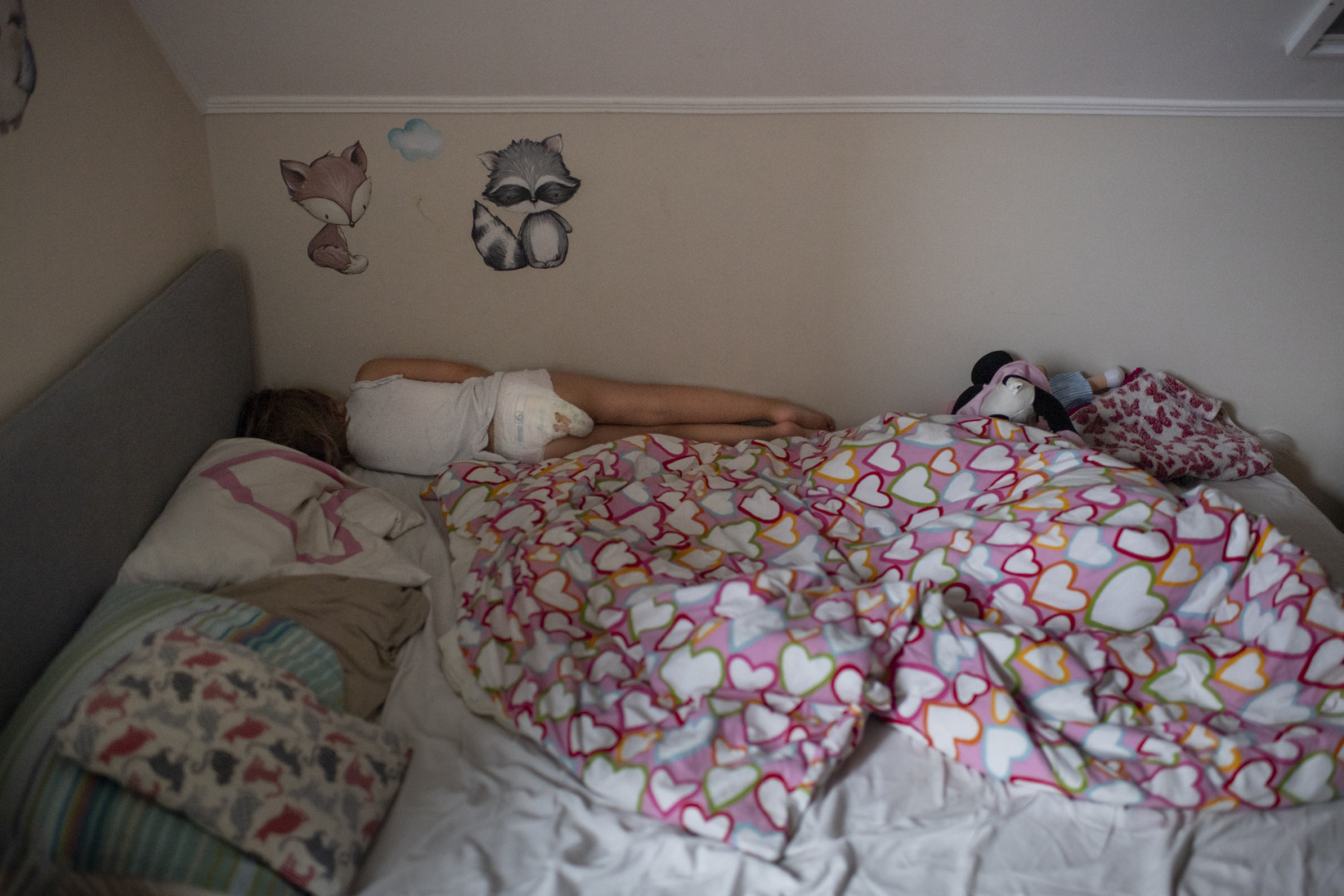
„At the nursery, Johanna once talked about her mum having died. A boy asked what that meant. She said there was a funeral, her heart doesn’t beat any more and she is up in the sky and can see her from there.”
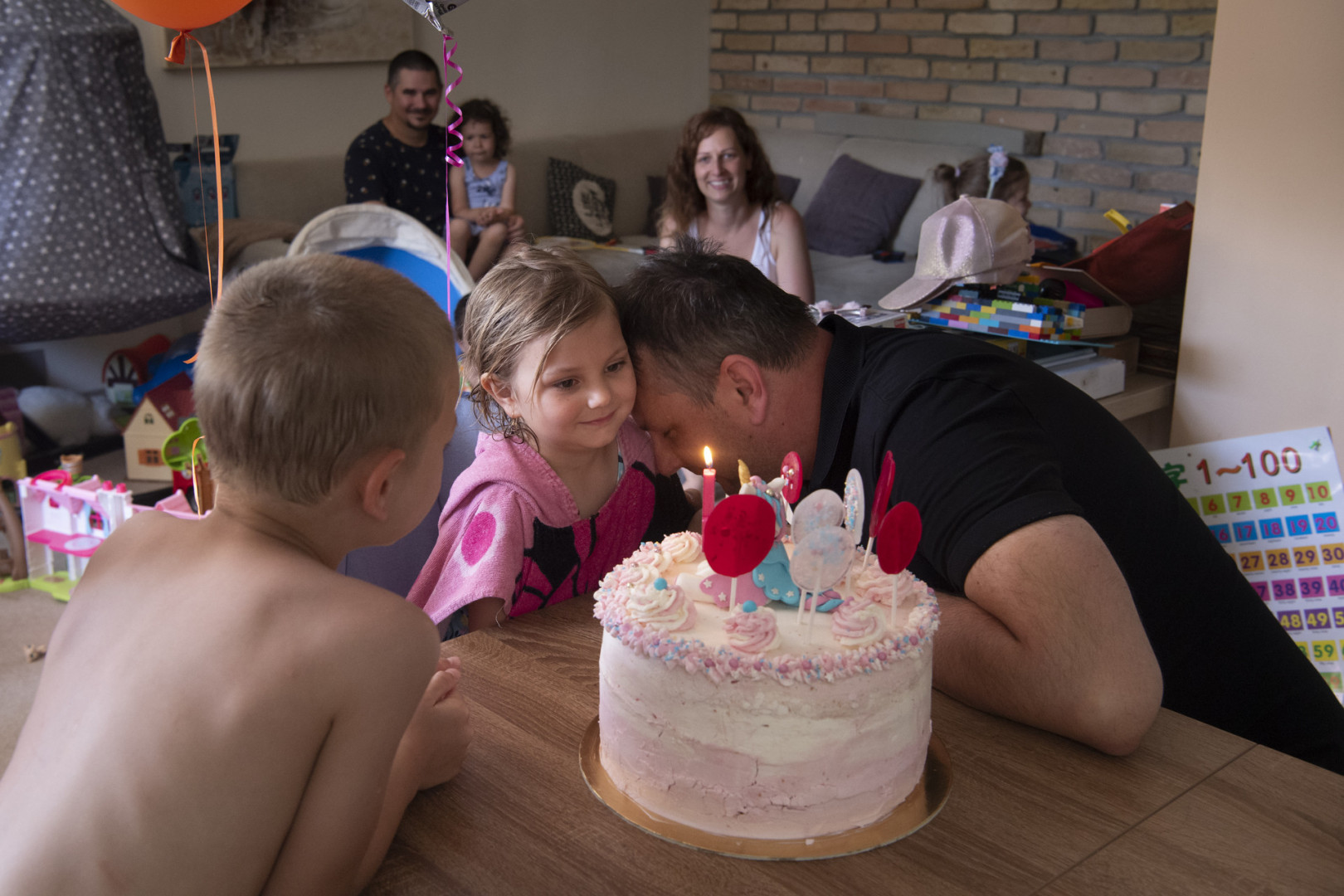
The family has now had its first celebrations without Erika, including the first such Mothers’ Day. In the nursery they didn’t celebrate it in Johanna and Nimród’s group because of the two children. Since then, Johanna has turned 4 and Nimród 6. In their different ways they both understand that their mum has died.
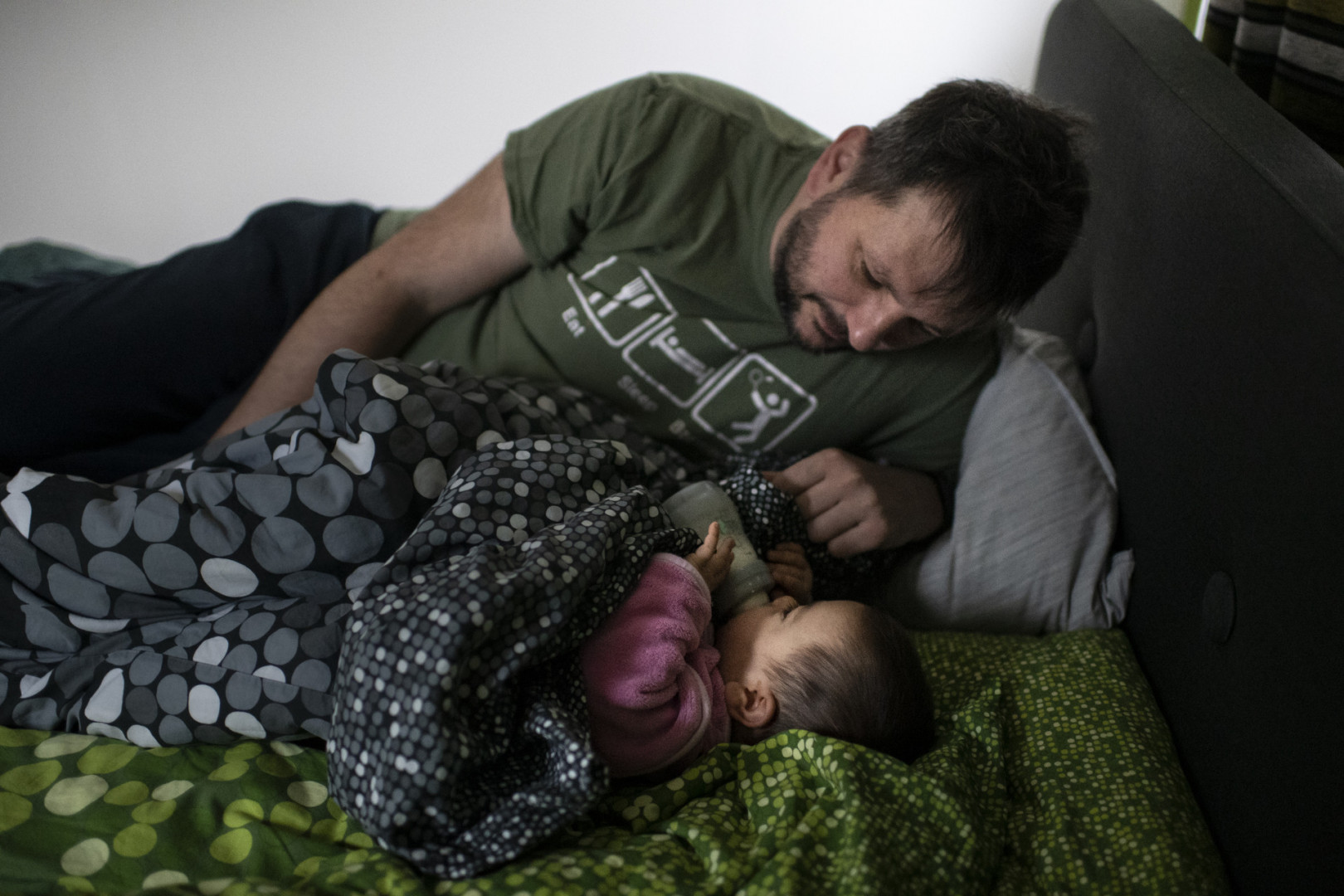
Gábor put away some of the photos of them together, and has bought a new bed for the bedroom. “I just felt depressed when I lay down in the bed where we used to be together. I wanted to change this.”
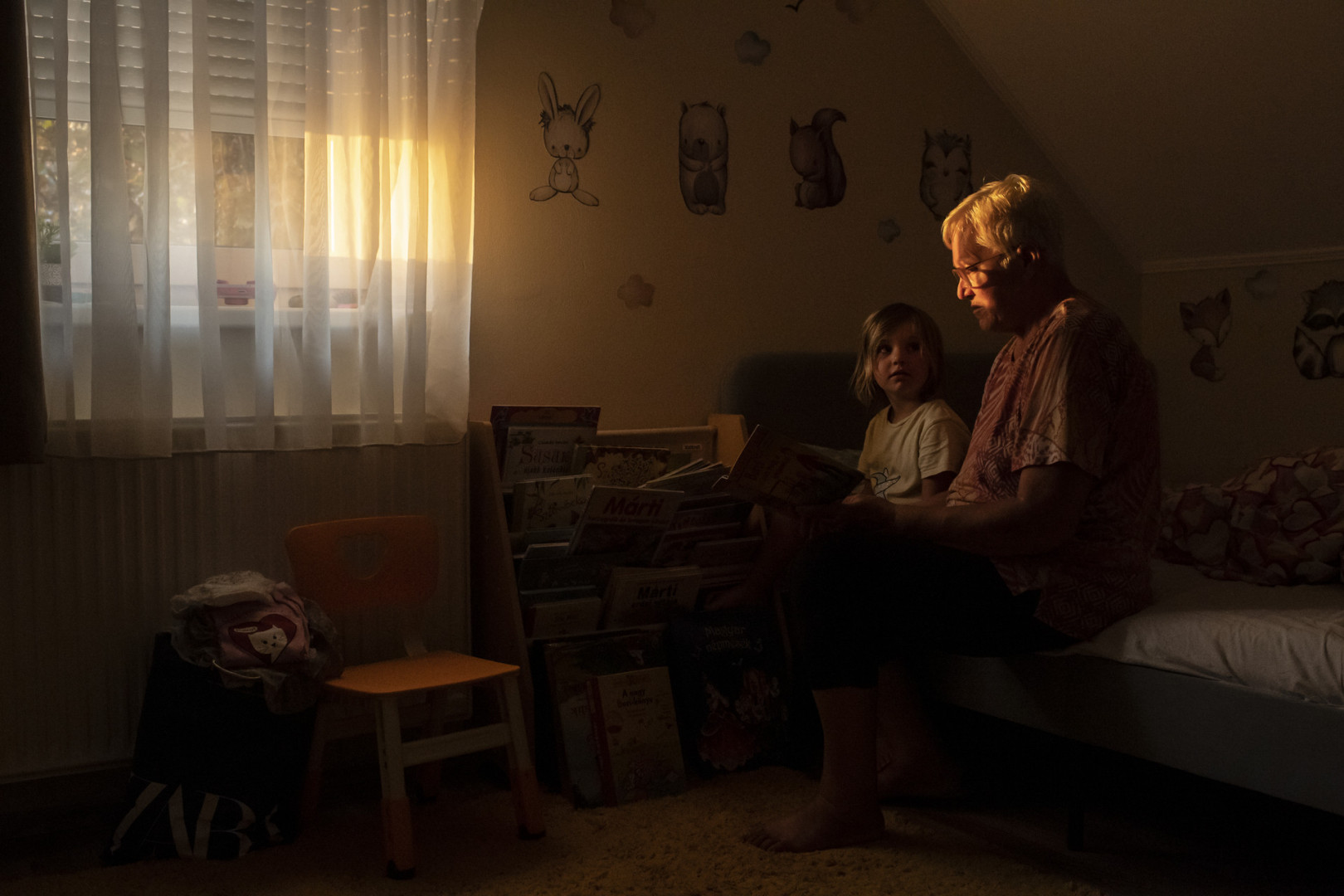
At the age of 70, Gábor’s mother became “the engine” running the family. She was the cleaner, surrogate mother and grandmother, all in one. She would get up three or four times a night to feed the new-born baby and comfort the older ones when they woke.
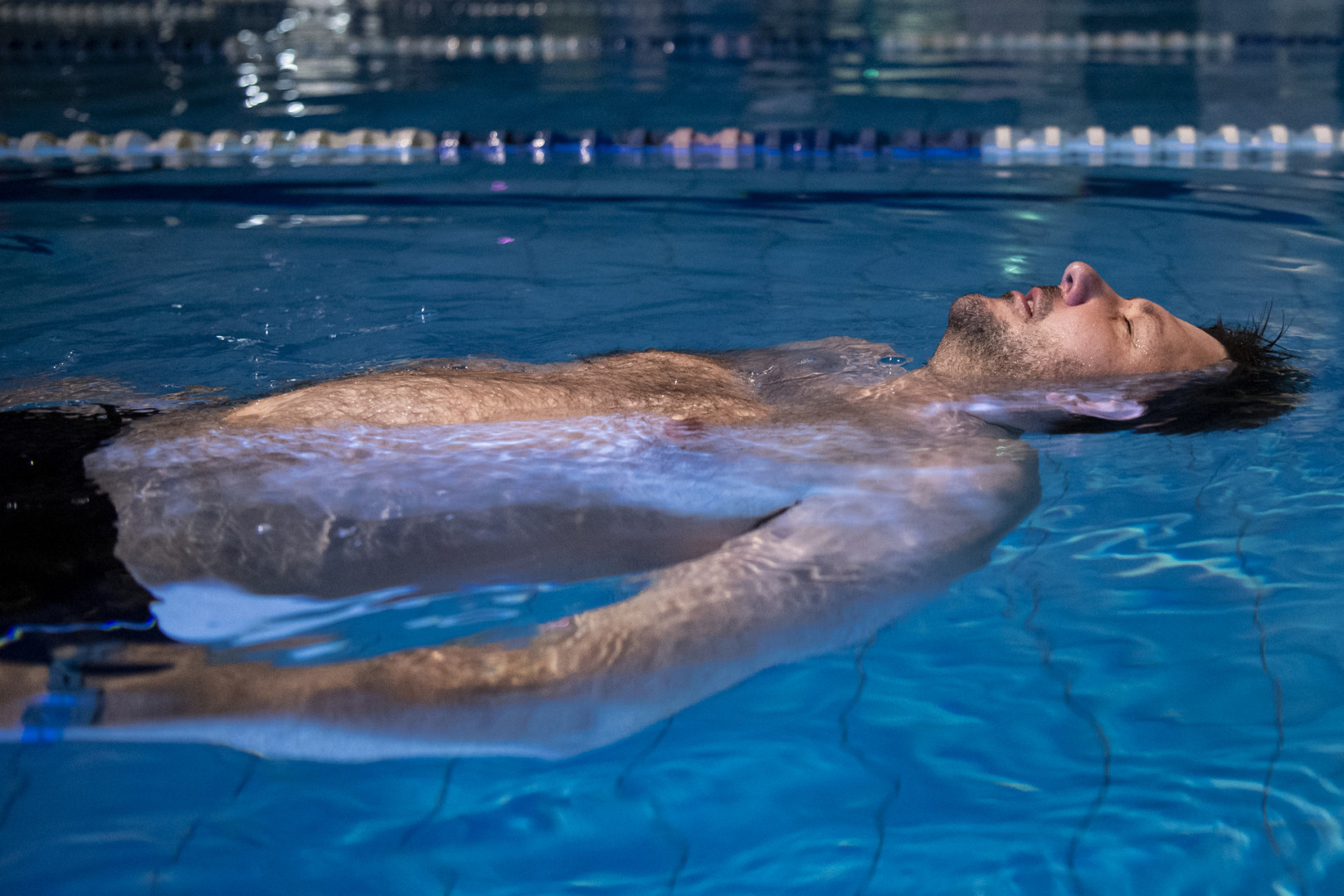
A school has to be chosen for Nimród, and “if Erika were here, it would have been sorted long ago”. Gábor says that the hardest thing now is „finding time and strength, as a parent left on his own, to look after himself a little”.
MÚOSZ-Grand Prize for the most outstanding achievement:
Simon Móricz-Sabján (Világgazdaság): A second life
In March 2021, 30-year-old Richárd Mészáros was taken by ambulance to the Uzsoki utca hospital’s emergency care department from his home in Budapest. From here, he was almost immediately moved to the Covid IC department. Ricsi spent 59 days here, and was on a ventilator almost the entire time. He left the hospital after a total of 113 days as a hero: his survival had become the common cause of the institution's staff. Even though prior to getting infected, Richi was a healthy young man, Covid still attacked almost all of his organs, his kidneys stopped working several times, and he received 14 units of blood.
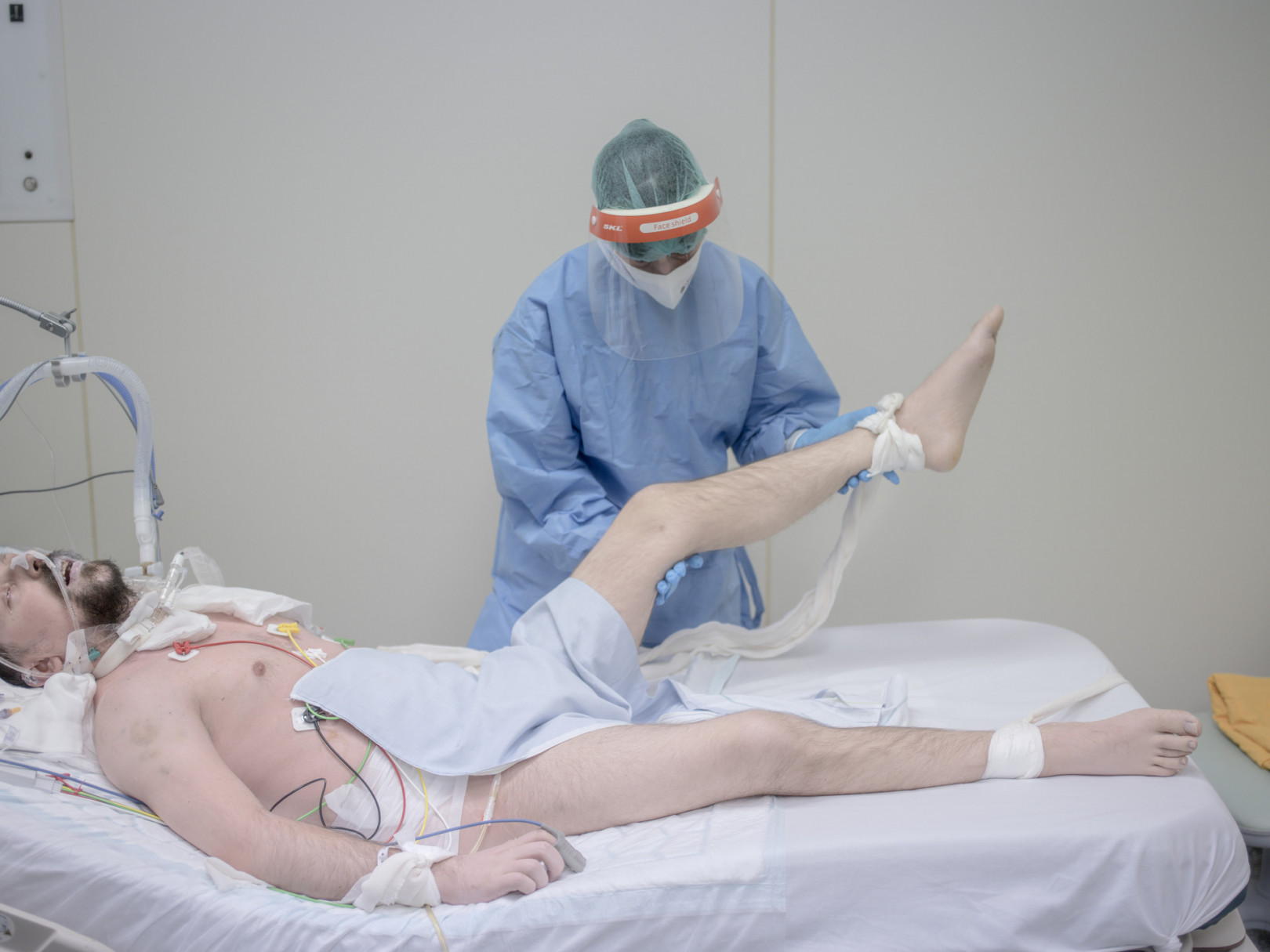
As with the other anaesthetised patients, Ricsi’s muscle tissue began to break down within a few days, so the daily work of the physiotherapists was a priority.
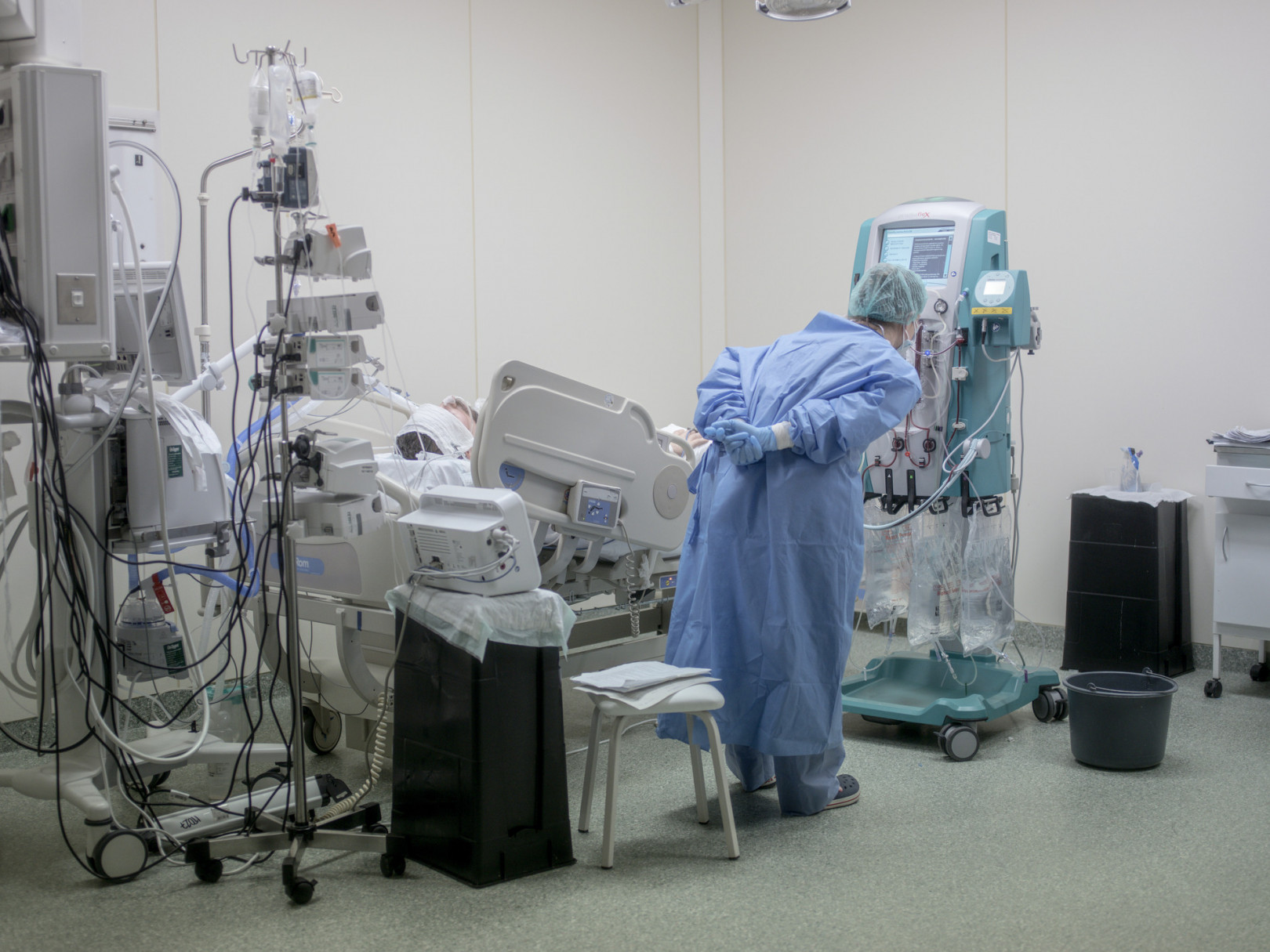
He received a total of 14 units of blood during the nearly two months of anaesthesia, which is considered an extremely high number.
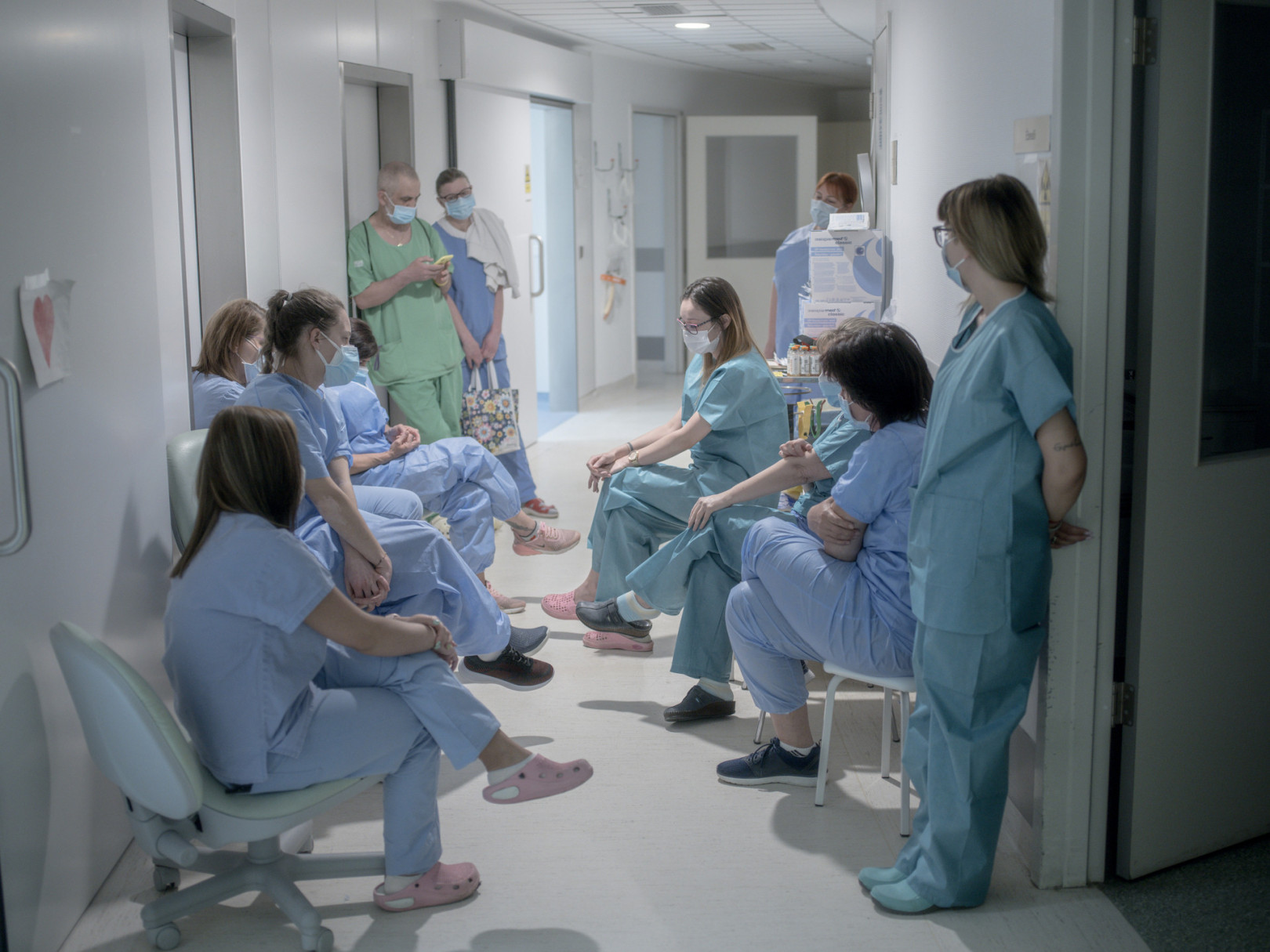
By the end of 2021, more than 40 thousand people have died of Covid in Hungary, which is one of the highest per capita death rates in the world.
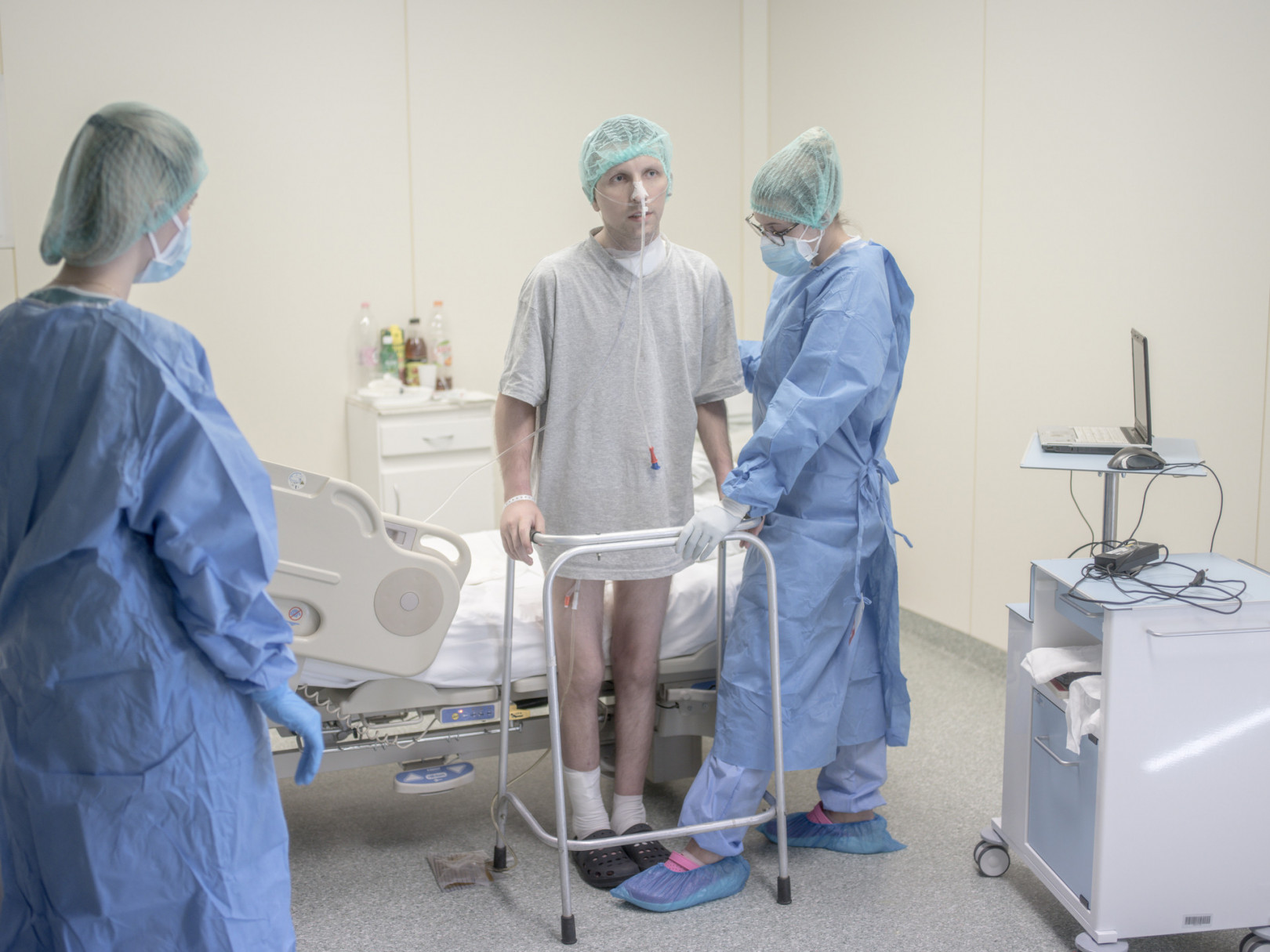
Ricsi survived the coronavirus infection after nearly 50 days on a ventilator, and the 30-year-old’s recovery was slow.
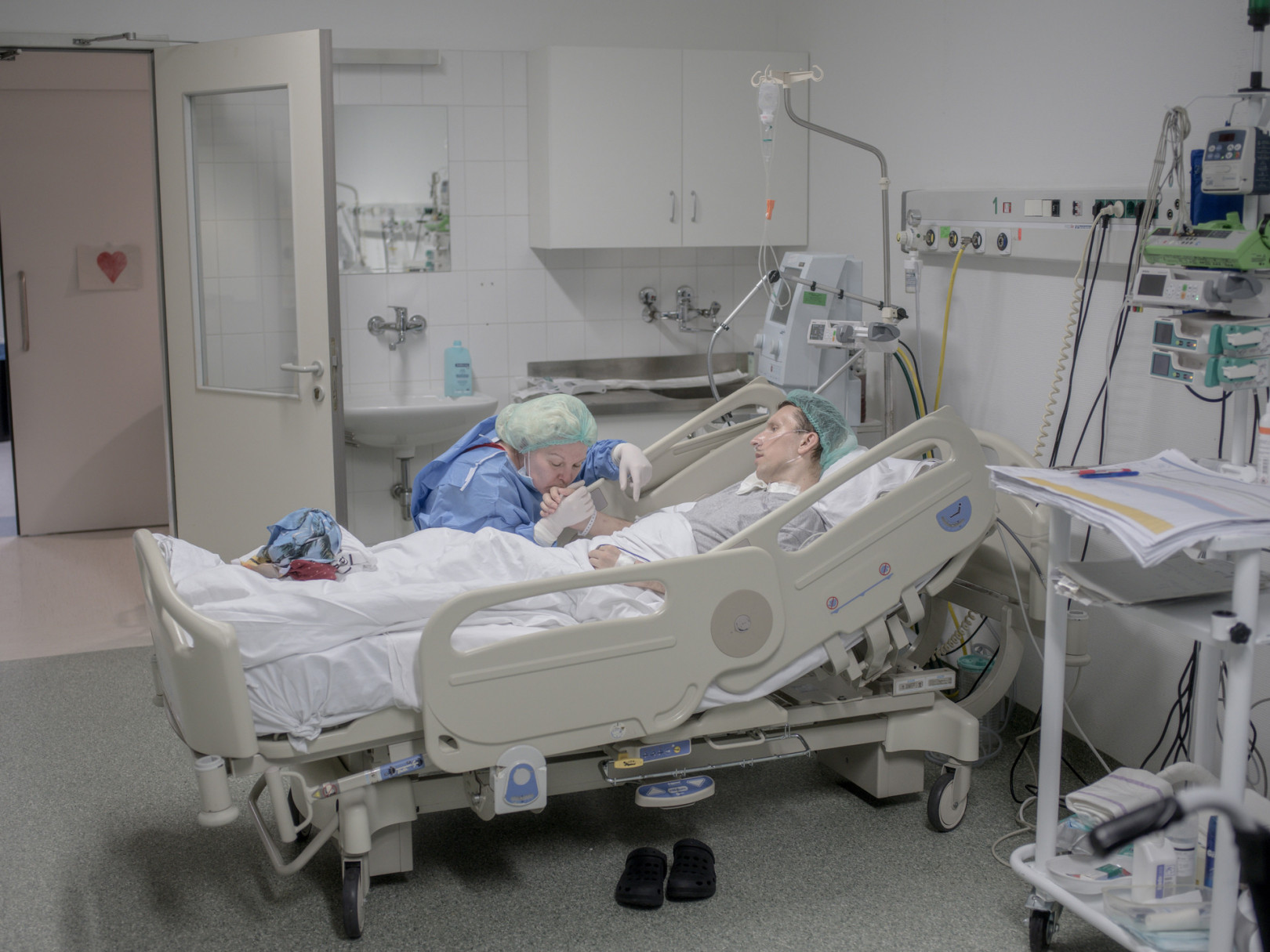
Patience was the most needed during the 54-day, slow recovery period.
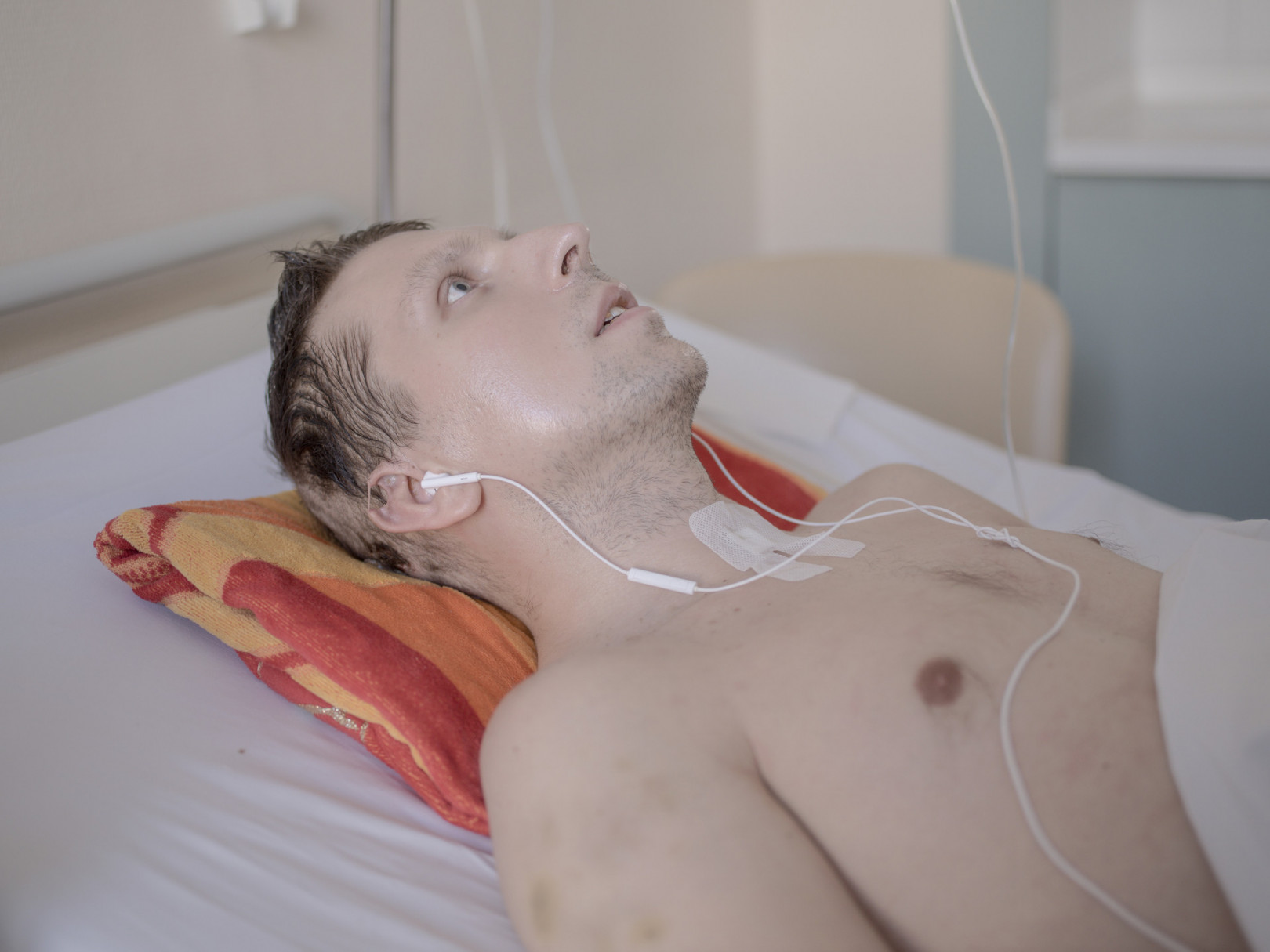
His parents’ care and regular visits were very important for Ricsi.
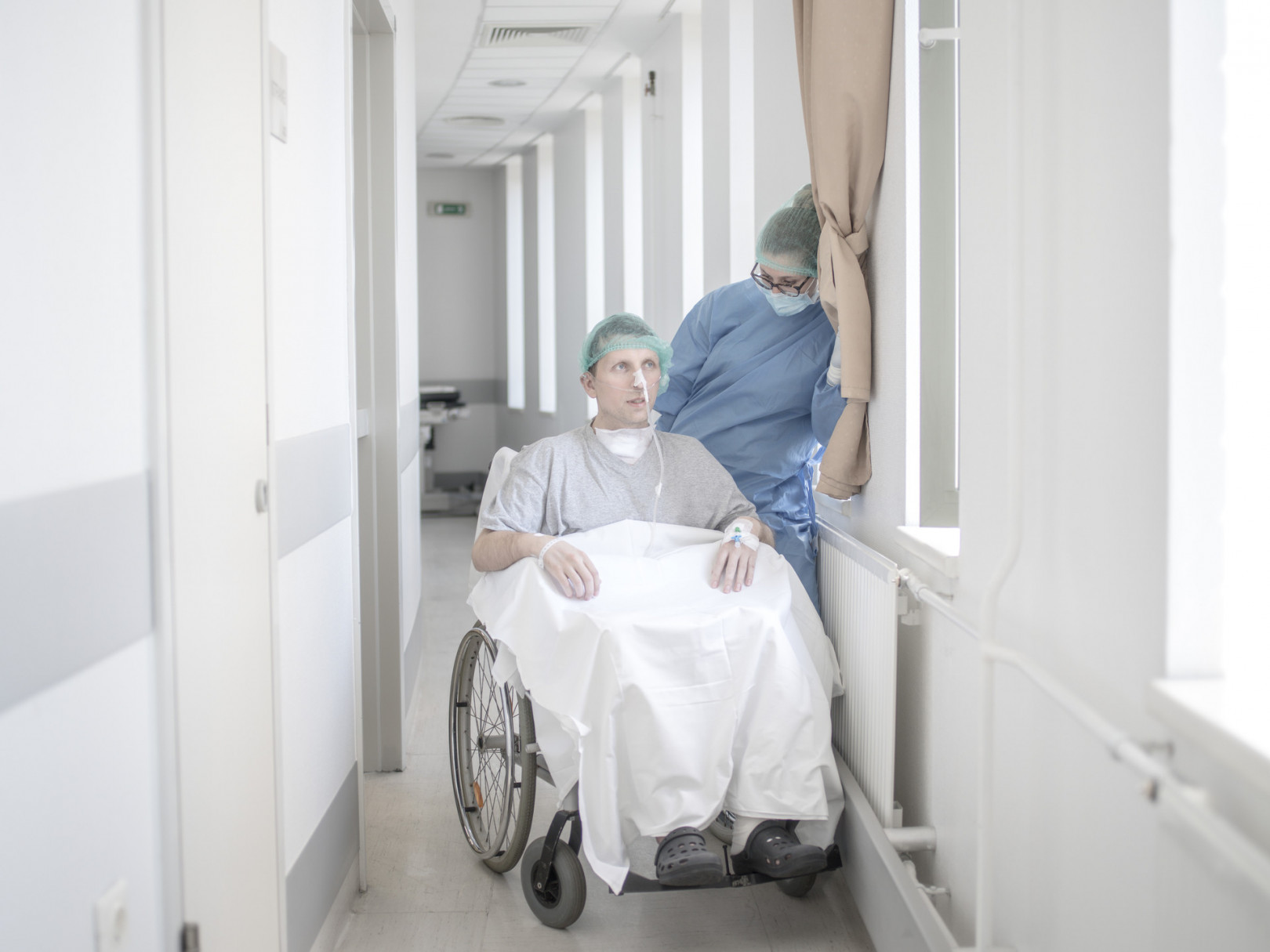
Following his infection in March, the first time Ricsi was again exposed to direct sunlight was in early May.
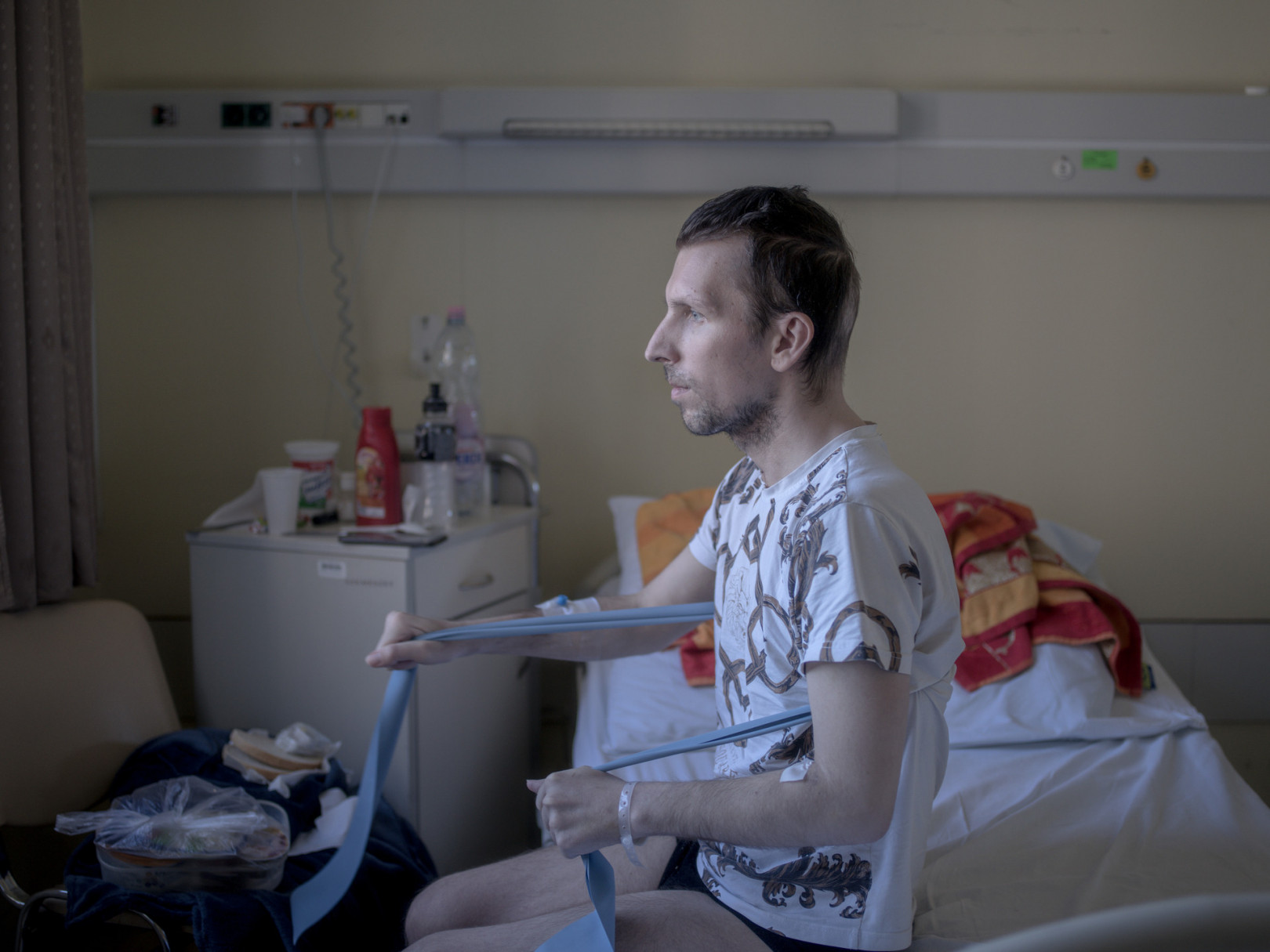
Before becoming ill, Ricsi worked at the police as an armed security guard. He trained three times a week and was in great shape when he got infected.
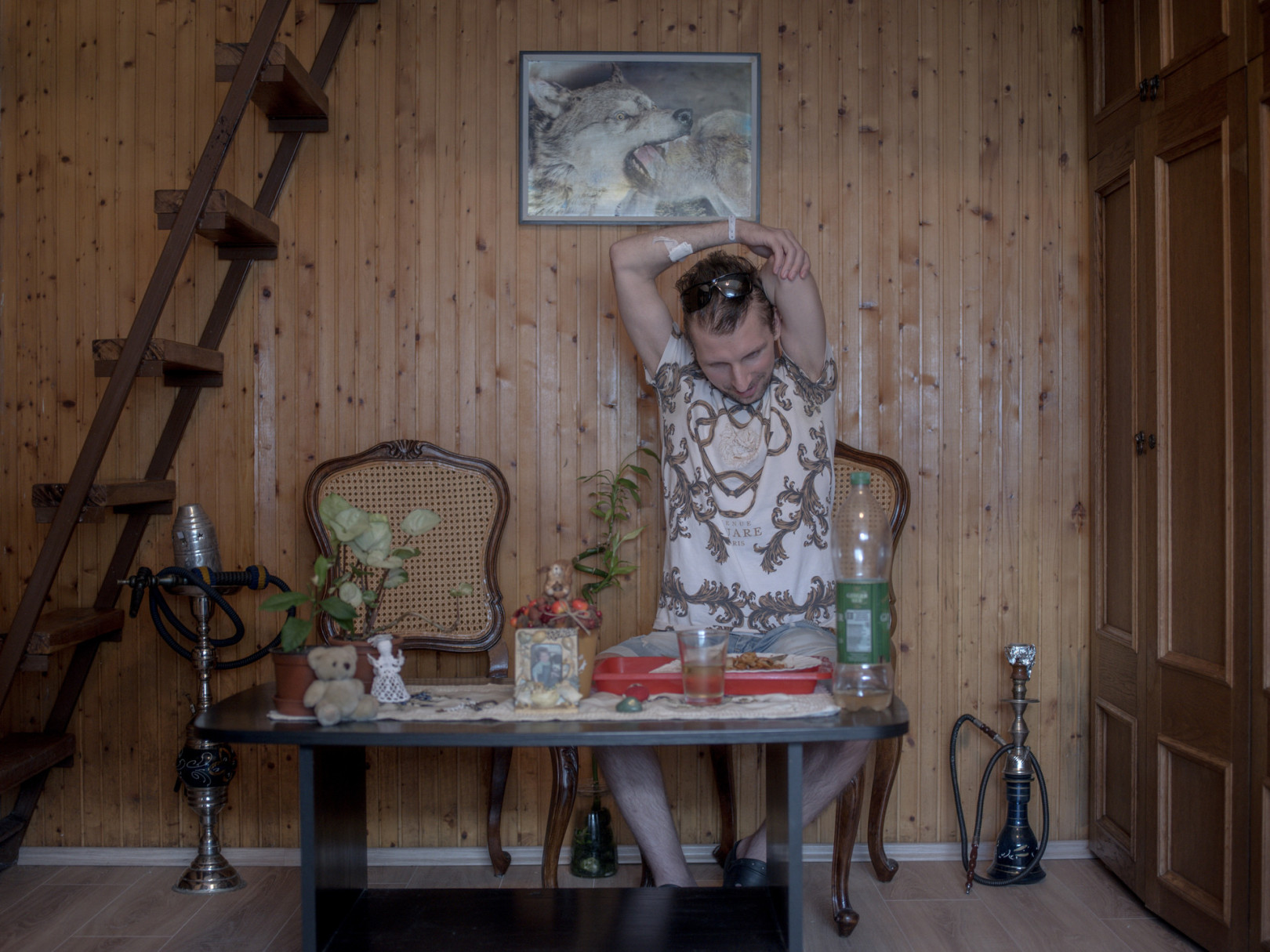
He finally defeated the virus four months later and was allowed to go home from the hospital in July.
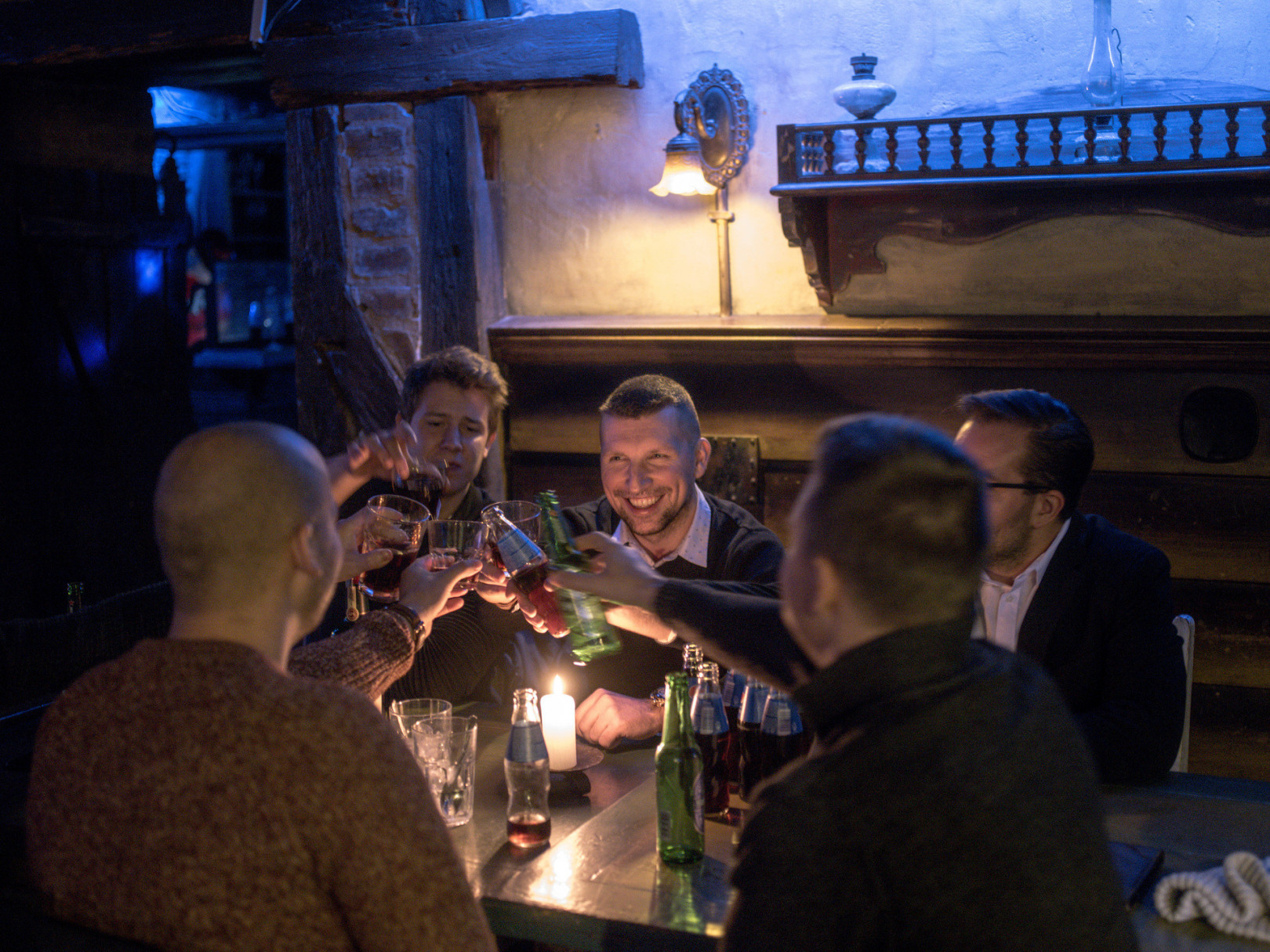
He celebrated his 31st birthday with friends on 28 November. Ricsi is very lucky to have recovered, and will hopefully soon be living a full life.
The exhibition of the award-winning photos and the best of Hungarian press photography of the last 40 years was organized by the Photojournalists’ Department of the Association of Hungarian Journalists (MÚOSZ) and the Robert Capa Contemporary Photography Center may be viewed at the Hungarian National Museum until 29 May 2022.
The award recipients of the 40th Hungarian Press Photography Competition:
GRAND PRIZES:
MÚOSZ Grand Prize
Simon Móricz-Sabján (Világgzadaság): A second life
André Kertész-Grand Prize
János Bődey (Telex): All they wanted for Christmas was for Mum to be alive
CATEGORIES, AWARDS:
News, events:
1st prize: Simon Móricz-Sabján Simon (Világgazdaság): The season of coronavirus
2nd prize: Dénes Erdős (Népszava): A tense situation
3rd prize: László Szabolcs László (Ripost): Tragedy on the road
Photo report
1st prize: Simon Móricz-Sabján Simon (Világgazdaság): A second life
2nd prize: Gábor Ancsin (Kepszerk.hu): The situation in the south is unchanged
3rd prize: Tamás Márkos (Transindex): Trial by fire
Everyday life (single photo)
1st prize: Zsuzsa Hullan (Vígszínház): Girlfriends
2nd prize: Bence Illyés (freelancer): The meeting of two worlds
3rd prize: István Csaba Sánta (freelancer): Levitation
Everyday life (series)
1st prize: János Bődey (Telex): All they wanted for Christmas was for Mum to be alive
2nd prize: Orsolya Ajpek (Telex): Dads
3rd prize: Sánta István Csaba (freelancer): Slow 2121
Portrait (single photo)
1st prize: István M. Kerekes M. (freelancer): Alexandru and Péter
2nd prize: was not awarded
3rd prize: Árpád Kurucz (Magyar Nemzet): Pilot György Háy
Portrait (series)
1st prize: Anita Becze (freelancer): Echoes
2nd prize: Eszter Halasi (freelancer): Life takes its toll
3rd prize: Tünde Nemes (freelancer): I am still a woman
Art (single photo)
1st prize: Tamás Oláh (freelancer): Neverland dress rehearsal
2nd prize: Tamás Oláh (freelancer): Online ballet
3rd prize: Sándor Csudai (Origo): Faces
Art (series)
1st prize: István Fekete (freelancer): Symphony at the roma village
2nd prize: Ádám Urbán (freelancer): Circus behind the curtain
3rd prize: Sándor Csudai (Origo): Bear dance
Sport (single photo)
1st prize: Gabriella Barbara (freelancer): Soccer rock-paper-scissors
2nd prize: Tibor Illyés (MTI/MTVA): Concentration
3rd prize: Szilárd Koszticsák (MTI/MTVA): Sedric
Sport (series)
1st prize: Márton Béres (Népszava): Tomy Rocky
2nd prize: Tamás Vasvári (MTI/MTVA): The night of fishermen
3rd prize: István Derencsényi (freelancer): High-light
Nature and science (single photo)
1st prize: Géza Attila Szabó (B.Y. Ecoline Kft.): At work
2nd prize: Norbert Kovács (freelancer): Little Devil
3rd prize: András Belovári (Keszthelyi TV): The world is turning
Nature and science (series)
1st prize: Milán Radisics (freelancer): Quarantined with a fox
2nd prize: Márton Kállai (Szabad Föld/Mediaworks): Enchanted by the weather
3rd prize: Márton Kállai (Szabad Föld/Mediaworks): Dissolving existence
Society, documentarist photography (single photo)
1st prize: Tibor Zagyi (Népszava): A lonely Christmas
2nd prize: Márton Mónus (freelancer): Floating
3rd prize: Péter Zsolnai (Blikk): The procession
Society, documentarist photography (series)
1st prize: Mihály Lex (Lex Antikvitás Kft.): The world of old Budapest tenement houses – in search of a vanishing way of life
2nd prize: Simon Móricz-Sabján (Világgazdaság): The season of the new norm
3rd prize: Ákos Stiller (freelancer): Digital education of the underprivileged
SPECIAL AWARDS
Márton Munkácsi Award for the best collection:
Simon Móricz-Sabján (Világgazdaság)
Károly Escher Award for the best news photo taken in Hungary:
Simon Móricz-Sabján (Világgazdaság)
Zoltán Szalay Award to the best photographer under 30:
Dénes Erdős (Népszava)
Rural photojournalist with the best achievement:
Dániel Röhrig (www.adathir.hu)
Sustainability Award:
Márton Kállai (Szabad Föld/Mediaworks): Dissolving existence
Commendation recipients:
Dénes Erdős (Népszava): NEK 2020
Dániel Röhrig (www.adathir.hu): Covid-diary about mom and us
Tamás Márkos (Transindex): Budapest, District 8
István Molnár Award for the best use of a photo:
Ákos Heltai, typographer
Mihály Gera Award for the most beautiful photo album of the last 5 years:
Fortepan Masters – Collective Photography from the 20th Century
Concept Creator and Art Director: Szabolcs Barakonyi
Creative Concept Design: Zalán Péter Salát
Managing Director: György Simó
Editor: Róza Tekla Szilágyi
If you would like to be up to date on news from and about Hungary, subscribe to the Telex English newsletter!